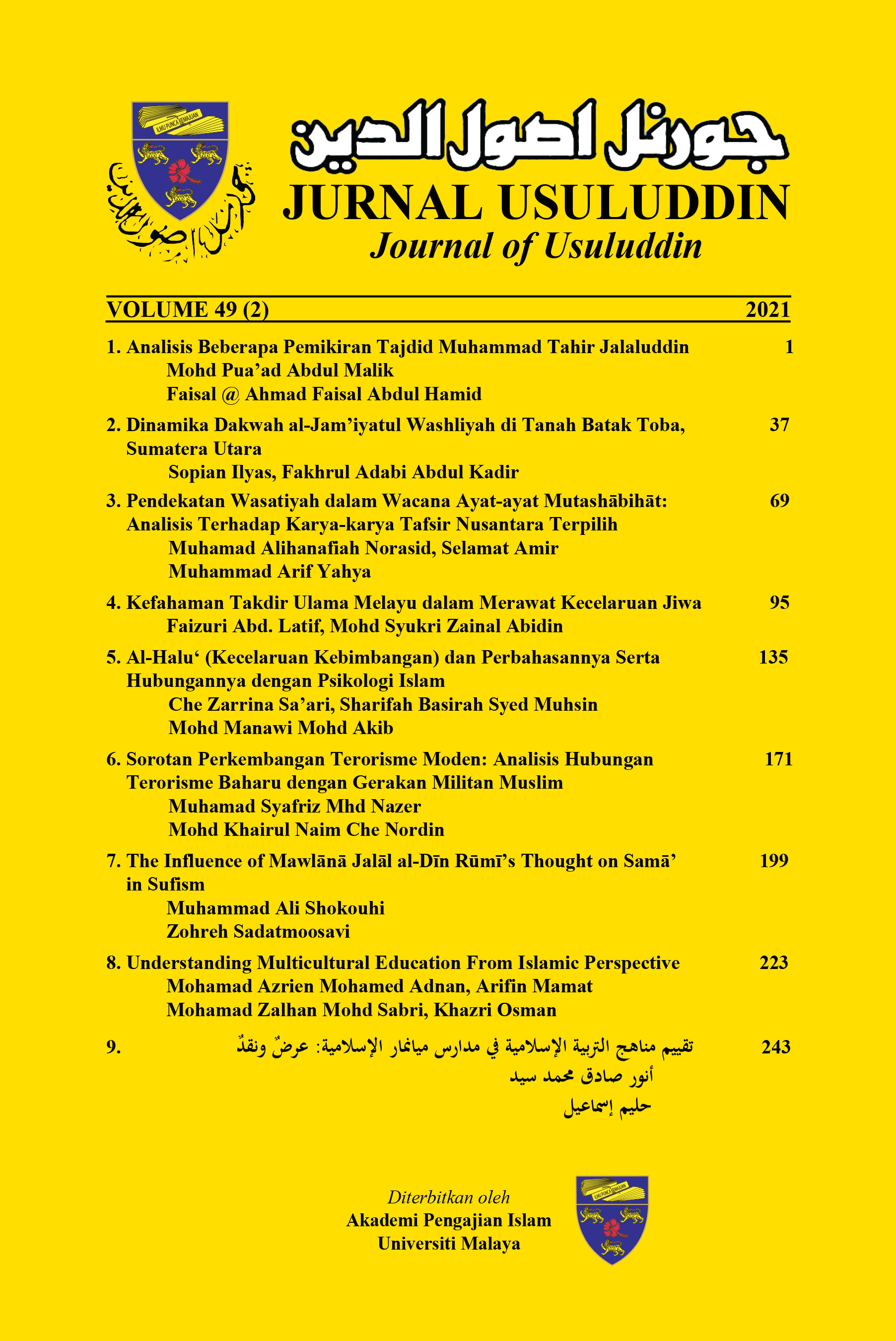The Influence of Mawlānā Jalāl al-Dīn Rūmī’s Thought on Samā’ in Sufism
DOI:
https://doi.org/10.22452/usuluddin.vol49no2.7Abstract
From the beginning of mysticism and Sufism in Islam, the devotional traditions and poetry into the form of dhikr along with dance and music entered in worship ceremonies of Sufis and gradually, a kind of mystical ritual formed which known as Samā’. According to the historical evidence, Samā’ have been controversial issue in Islam and Sufism, and caused long term disputes and debate between religious scholars and Sufis. In this regard, some of them commanded the prohibition of Samā’ and music even as haram or illegal. Compared to the above situation, Mawlānā’s viewpoints and his measures have had crucial role on developments of Samā’ in Sufism even in Islamic civilization. He believed that Samā’ is not only permissible in Islam, but it is a necessary religious practice as a spiritual step. After Mawlānā and by the formation of Mevlevi Tariqa the Samā’ stabilized among his followers as its inseparable part in mystical rituals, and continued by thrive different forms of musical performance in Mawlawiya rituals at that time and afterwards. A textual and attributive review, this paper is a library-based case study and historical research using qualitative method with an inductive approach.











